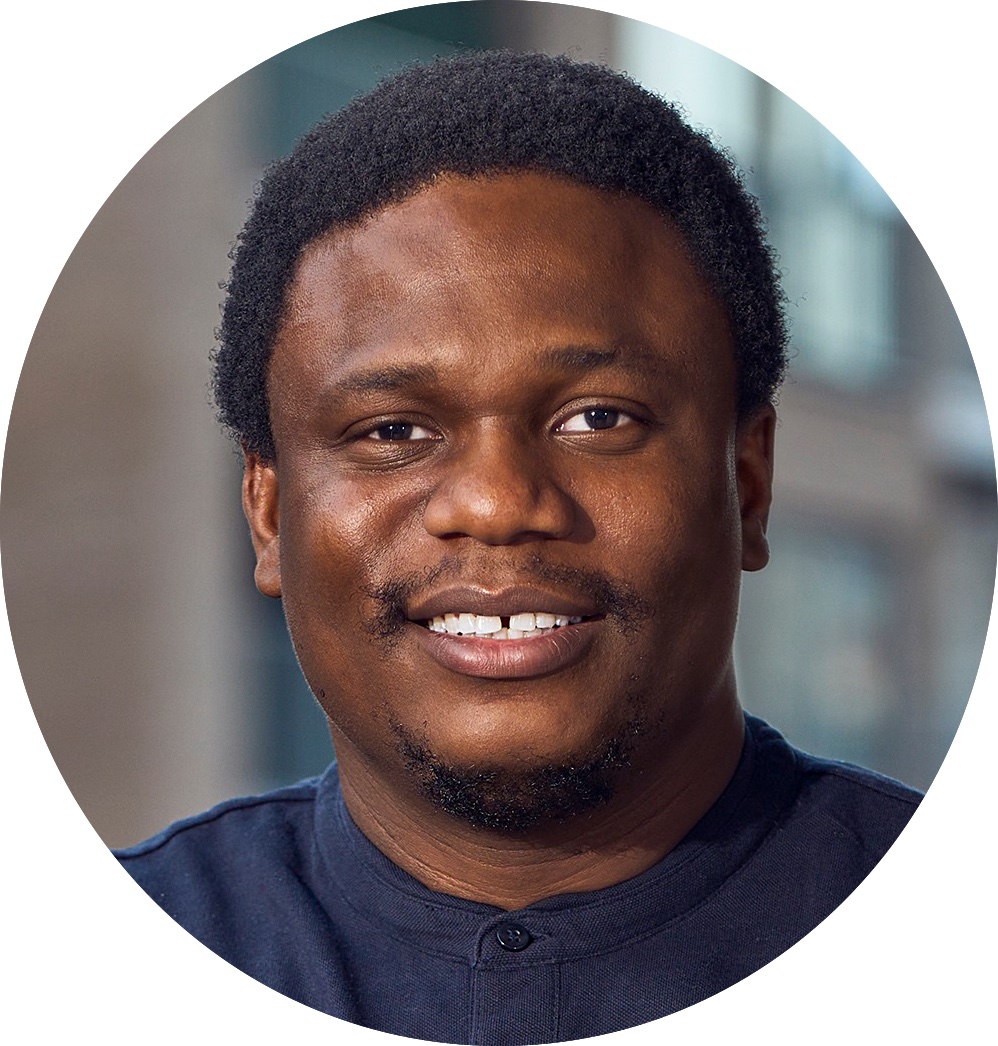
Formerly known as TeamApt, Moniepoint is the largest business payments platform in Nigeria. The company processes $170 billion in annualized total payments volume (TPV), and became QED Investors’ first investment in Africa last year.

Headquartered in London, with offices in Nairobi and Lagos, as well as the U.S., Moniepoint was founded in 2015. The company counts more than 600,000 businesses large and small among its customers. Moniepoint has been recognized by the Central Bank of Nigeria as the most inclusive payment platform in the country, and was named the second-fastest growing company in Africa by the Financial Times.
We caught up with Tosin Eniolorunda (pictured), founder and CEO of Moniepoint, to discuss the state of fintech in Nigeria and what Moniepoint is doing to help provide better financial services to businesses and communities in Africa.
In our extended conversation, we discuss challenges to digital transformation in the region, the evolution of Nigeria’s cashless economy, and what to expect in the wake of Moniepoint’s recent rebranding.
What problem does Moniepoint solve and who does it solve it for?
Tosin Eniolorunda: Moniepoint solves the problem of fragmented, inaccessible, and low-quality financial services for businesses in emerging markets. It is a full-service business banking platform seeking to provide all the digital financial services a typical business needs.
Moniepoint specifically provides businesses in emerging markets with banking, payments, credit, and business management tools to help them grow. Our motivation is to power business dreams and create financial happiness for our customers. We recognize the importance of businesses in driving economic growth. By powering the profitability and operations of these businesses, we hope to enable them to make significant contributions to the economy at large.
To date, we have powered the dreams of over one million businesses who support local communities up and down Africa.
Your company began the year with a rebrand, transitioning from Team Apt to Moniepoint. What was the significance of this decision?
Eniolorunda: The company, TeamApt, started as a service provider, and our name was aptly selected. The team providing these services was the heart of our solution. As the company grew, our flagship product – Moniepoint – became ubiquitous in the market, and it became necessary to bring everything together to push the whole brand forward. We had become the point for people’s money, and it was only right we took up that name.
We know top talent is highly sought after in the global fintech industry, which is why we wanted to show our commitment to embracing the best and brightest by going out into the world in our choice of headquarters. By being more globally oriented, we want to be recognizable as an employer of choice for talents around the world.
What is the financial services industry like in Nigeria? And what is its relationship with the fintech ecosystem?
Eniolorunda: The financial services industry in Nigeria is generally a collaborative one. The Central Bank of Nigeria drives policy change in collaboration with all players in the industry – traditional banks and fintech players – all geared towards a more financially inclusive ecosystem. An example of how this plays out is fintechs working with traditional banks as their settlement partners, and traditional banks providing virtual account solutions to fintechs so they can, in turn, provide digital wallets to their customers.
It’s also recognized that fintechs take a generally technology-first approach to financial solutions, and regulations exist to make this as seamless as possible.
You have said that “low-trust” is an impediment to digital transformation in Africa. Can you elaborate on this challenge and what is necessary to overcome it?
Eniolorunda: Financial education is particularly important to gain trust and support for digital transformation, as people generally are wary of what they do not understand. In societies with a large percentage of uneducated people, it is expected that they will push back on innovation that promises to make their lives better.
For example, if a digital bank wants to provide nimble convenient services, it might decide not to have physical branches or a call centre to manage costs. However, low-trust means that these communities of people want to see a person or hear from them in order to leave their monies in the bank.
We overcame this barrier by approaching these markets using a hybrid distribution method – via collaboration with local people they could identify. When they got introduced to these digital solutions by people they knew and saw in their neighborhoods, it became easier for them to trust these products and try them out.
This spring there were a number of headlines about the “cash crisis” in Nigeria. Can you tell us about this and how the crisis impacted Moniepoint?
Eniolorunda: In March 2023, as part of its effort to aid in adopting cashless means of payments, combat inflation and prevent fraud, the Central Bank of Nigeria started a redesign of the Naira, Nigeria’s currency. People had to turn in their old notes as they were no longer legal tender, and the consequence of this process was a reduced availability of cash and, by extension, increased reliance on digital payments.
Moniepoint began to focus on supporting businesses in April 2022, extending our banking and payment tools to them. Consequently, during this cash crunch, we were well-placed to provide these businesses with the tools they needed to accept digital payments and stay afloat.
As a result, we saw a surge in transactions during this period. We adjusted our platform to make it more reliable, helping us to keep supporting these businesses.
What role will Moniepoint play in an increasingly cashless economy in Nigeria and other parts of Africa?
Eniolorunda: By being a banking partner for businesses, we enable them to receive payments digitally, which is very important in Africa’s journey towards becoming a cashless economy. In 2022, we helped businesses process over $170 billion, and are continuing this positive trend in 2023.
We are determined to stay at the forefront of the digital revolution. Initial efforts across the continent have been focused on providing individuals with access to digital financial services, giving them cards and other means to pay digitally. It’s not enough for customers to be empowered to pay digitally; the businesses have to be equipped with the education and resources to receive these payments.When businesses are able to receive these digital payments directly, cash becomes less central to every transaction, and we’re collectively closer to a cashless ecosystem.
There has been talk in the fintech press about Moniepoint and potential acquisition opportunities. Is the company actively looking to make significant acquisitions?
Eniolorunda: Yes, the plan is to make significant and strategic acquisitions that align with our overall goal of providing an all-in-one financial platform for businesses in emerging markets. These acquisitions allow us to expand our product suite or enter new markets.
Also recently Moniepoint announced a partnership with Google Cloud. Why did Moniepoint pursue this partnership, and what will the partnership help Moniepoint accomplish?
Eniolorunda: As we grew bigger and faster, it was important that financial transactions on our platform could be performed at light speeds, so adopting a hybrid cloud strategy was key for us.
Some of the tools include Cloud Spanner and Kubernetes, which help us to manage and process high volumes of transactional requests per minute, with no lag time. A partnership with Google Cloud ensures we can use their services with personalized support that the scale of our business needs.
What can we expect from Moniepoint in the second half of 2023 and into next year?
Eniolorunda: We are proud to have already been be recognized this year as not just Africa’s largest fintech, but also its fastest-growing. But this is only the beginning.
We have so much in store for the second half of 2023, including plans for a new product and to enter new markets. Watch this space.